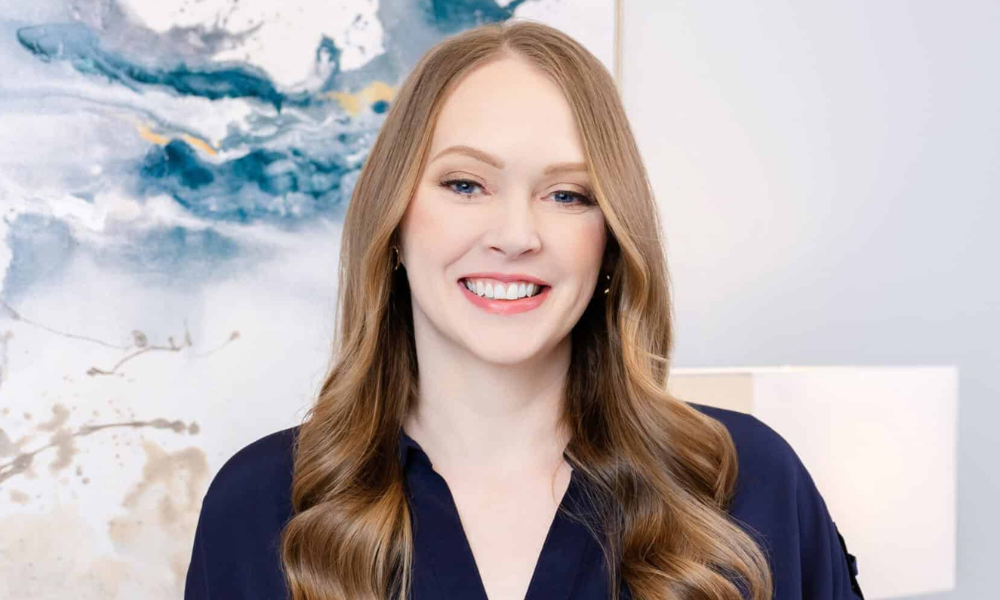

Hannah Moore likes working with people who've spent most of their working years outside of financial services – she's carved out a niche training professionals who are new to the business.
“We really see the value of career changers," said Moore, founder of firms Guiding Wealth and Amplified Planning. "There's a huge talent pool that's been largely untapped from the career changer standpoint. Everyone on [Guiding Wealth] staff, except for me, has been a career changer.”
They come with unique life experiences that can help them connect with clients, she said.
"They all bring such different skill sets and different perspectives," she said. "We love seeing people who bring different aspects into it because we think it makes us stronger."
Moore’s decision to tap into career changers aligns with the firm’s client-centered philosophy. She said these individuals will be more invested in developing strong client relationships and providing meaningful financial advice.
The Amplified Planning CORE intensive training program is modeled after medical residencies, she explained.
“We see a lot of parallels to what's happening in our space and with the medical field,” she said. “They go to medical school; they get the knowledge. Where do they learn the application? They go to residency, and that's where you marry that application. That's what we're really trying to do with the firm.”
The curriculum aligns with CFP Board standards but goes beyond textbook instruction by incorporating specialized topics such as cash flow and student loan planning.
"A lot of the sales training right now is really focused on just client acquisition, which is absolutely essential," she said. "But we also believe that, especially as we professionalize financial planning, the need for the training around, how can we service our clients well?"
A hallmark of the program is its emphasis on practical training, where residents receive 20 hours per week spent particularly through practice clients.
Over the course of a year, they work pro bono or on discount rates with clients, and every meeting is recorded, reviewed, and dissected in group settings.
“We probably watched over 25 client meetings,” Moore said. “This method helps residents see different client styles, communication dynamics, and learning patterns. The rapid feedback they receive accelerates their development.”
"We use the client meetings as the core of the training and then everything flows out of that, because that's really where the rubber meets the road and where some of the best training happens,” she added.
As both Guiding Wealth and Amplified Planning continue to grow, Moore plans to expand the training program, using it as a “model template for best practices within the field for firms who want to do things differently," she said.
Additionally, she said she aims to redefine the role of the financial planner.
"Not everyone’s going to need a comprehensive financial planner, but if someone got good advice at a couple key inflection points within their life, that could make a dramatic change on their financial situation," she said.
"If we're not here to help those people, what are we doing?"
“I've been telling firms for the last decade, if you want your new hires to be successful faster, bring them into the client meetings. We’re really diving into that."
“Client-centered financial planning is going to be the culture of what we want."

By listening for what truly matters and where clients want to make a difference, advisors can avoid politics and help build more personal strategies.

JPMorgan and RBC have also welcomed ex-UBS advisors in Texas, while Steward Partners and SpirePoint make new additions in the Sun Belt.

Counsel representing Lisa Cook argued the president's pattern of publicly blasting the Fed calls the foundation for her firing into question.

The two firms violated the Advisers Act and Reg BI by making misleading statements and failing to disclose conflicts to retail and retirement plan investors, according to the regulator.

Elsewhere, two breakaway teams from Morgan Stanley and Merrill unite to form a $2 billion RIA, while a Texas-based independent merges with a Bay Area advisory practice.
Orion's Tom Wilson on delivering coordinated, high-touch service in a world where returns alone no longer set you apart.
Barely a decade old, registered index-linked annuities have quickly surged in popularity, thanks to their unique blend of protection and growth potential—an appealing option for investors looking to chart a steadier course through today's choppy market waters, says Myles Lambert, Brighthouse Financial.
